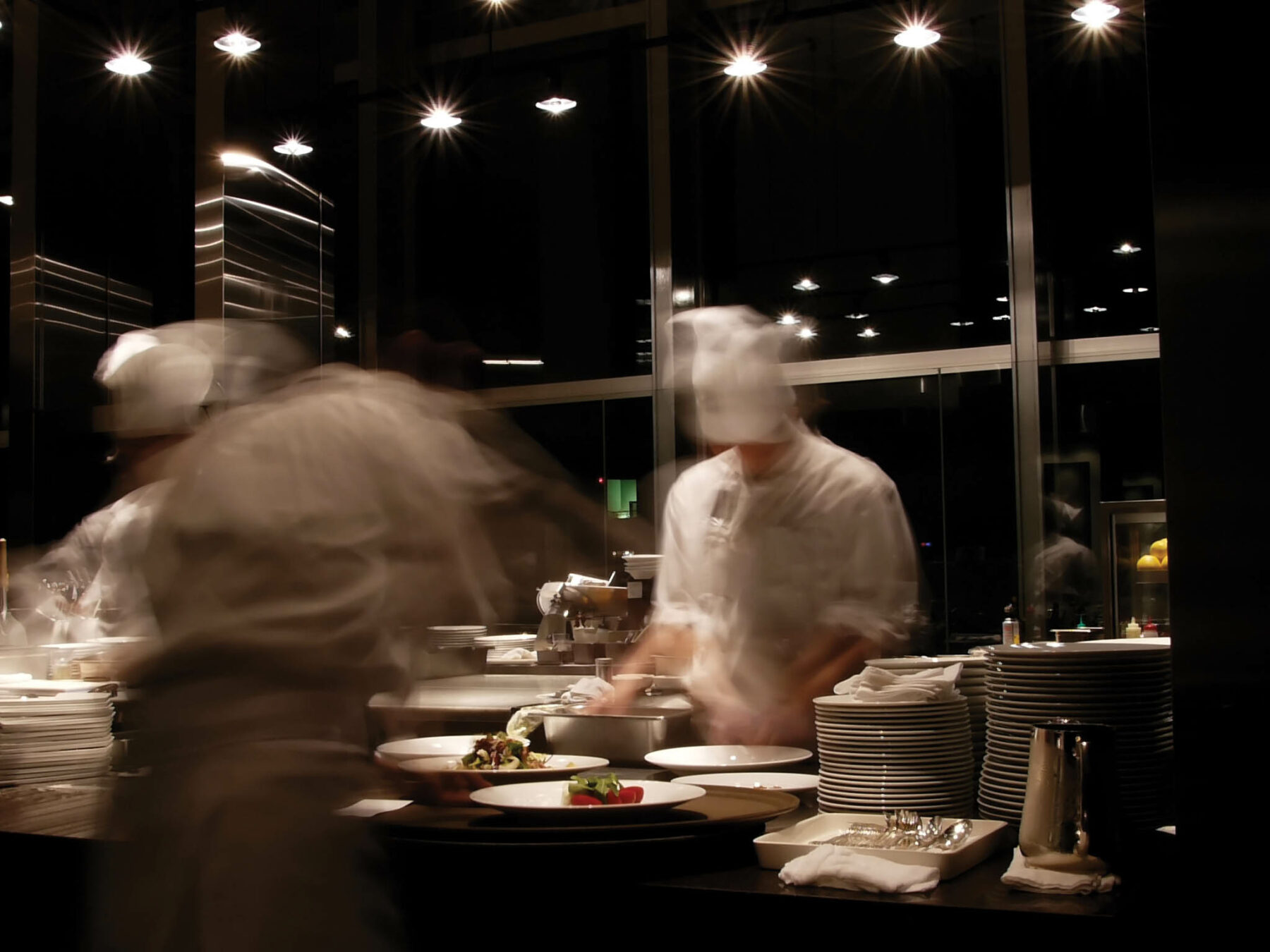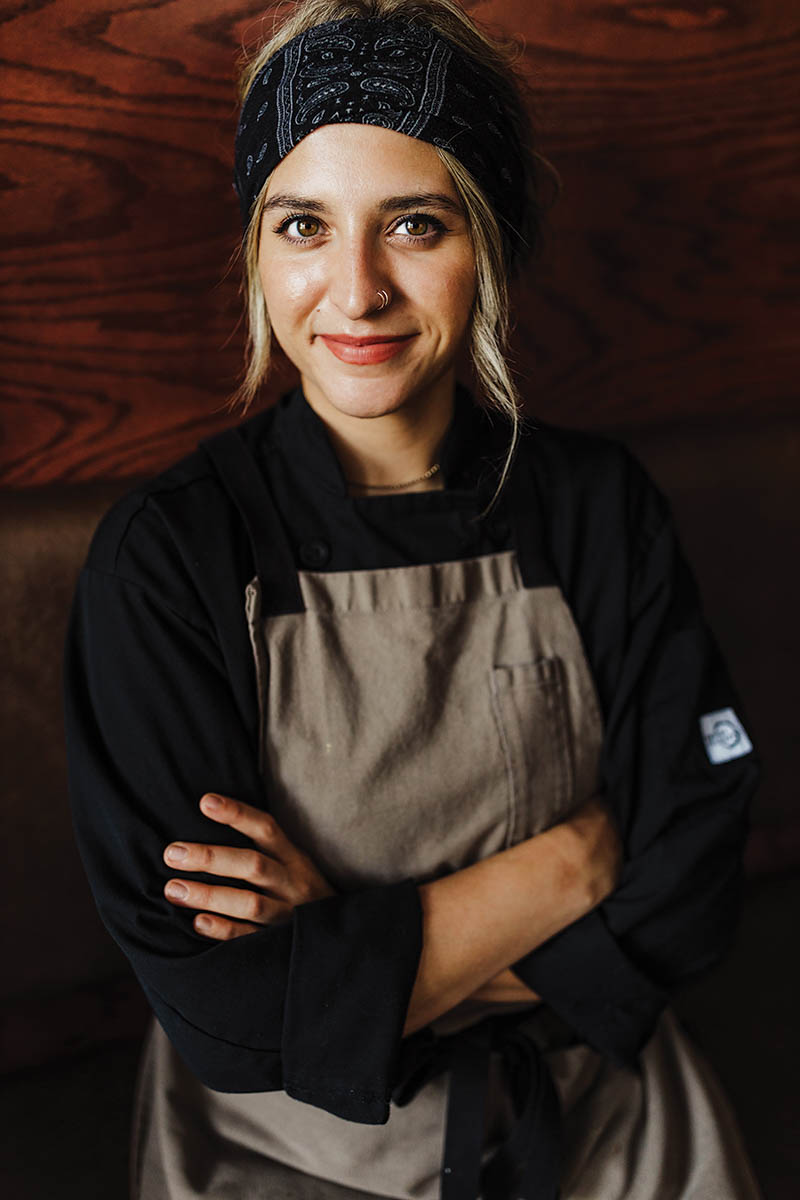How Austin-Based Chefs Are Taking Care of Themselves

While in Austin, I’ve been lucky to have incredible chefs as both clients and friends. But common themes I’ve seen are both a burning passion for work and a backpack full of stress.
From an outside perspective, I see the toll this industry can — and often does — take on people, and I’d love to see better self-care penetrate the industry. I had the opportunity to speak with two amazing chefs about how they perceive the food industry and how self-care fits into it all.
Nate Pearlman is a 17-year restaurant industry veteran who has been both sous and executive chef. Currently, he works at Intero and has recognized how self-care isn’t valued in the restaurant industry.

Photo courtesy of Nate Pearlman
“If you take breaks, you are ‘weak,’” Pearlman says. “People pride themselves on how much they can get done.”
Pearlman says there is a strong trend of chefs working all day and partying all night on repeat. Even as a sous chef, he was working 50 to 55 hours per week and worked 60 to 70 hours a week as an executive chef.
Likewise, Catalina Carrion-Kozak — the co-founder of Wicked Roots — expressed a similar sentiment. She’s been in the restaurant industry for 11 years and has found it to be “very militant and masculine.” She often witnessed a lifestyle of daily drinking, drug use, awkward sleep schedules and, of course, work that became all-consuming.
Carrion-Kozak says it wasn’t uncommon for her to start work at 11 a.m. and not leave until midnight or later. And by the time the shift was over, Carrion-Kozak says most people went out to be social since it was the only time they had.
Eventually, Carrion-Kozak left the industry to start her own company as she realized that even while working at farm-to-table restaurants, the industry is largely wasteful and unsustainable long term. Instead, she wants to set her own standard of work in this field and focus on family as she grows out of her previous experience.
“(In the restaurant industry), you are in fight-or-flight mode for the whole shift,” Carrion-Kozak says. “It can be difficult to train yourself out of that.”
If you notice your health taking a dip as a chef, Carrion-Kozak suggests having a nighttime routine that’s grounding, especially if you don’t leave work until 1 a.m.
“Having a cup of tea, washing your face, stretching and making all these things a ritual to help regulate your nervous system before bed is invaluable,” Carrion-Kozak says.
She says anxiety is a huge trend in the industry, and stress support should be prioritized. During her time in the industry, only one chef stood out to her among the rest as they made a self-care program for their employees.
As a customer, you want your meals to be made with love, care and nourishment, but this won’t happen if the people behind the meals are not nourished and cared for. Carrion-Kozak says people in this industry are often malnourished physically, mentally and spiritually.

Photo courtesy of Catalina Carrion-Kozak
“It can be a soul-sucking industry,” Carrion-Kozak says. “There is a lot of opportunity for growth.”
However, this environment opened her eyes to how important investing in health is. She often advises people to recognize what keeps them sane and healthy, which can include seeing a healthcare provider regularly.
Pearlman says it’s important for consumers to have awareness of what their servers are experiencing.
“If you are visiting a restaurant, know the demands of the job and what it takes to get your food on the table — from growing the food to getting it to your plate,” Pearlman says. “If people knew that, they would be willing to accept a higher price for food and have more patience.”
However, he recognizes trends have moved in a positive direction over the past 17 years, but understands there’s still a long way to go. Luckily, his current job has served as a “safe haven,” as the restaurant goes the extra mile to care for its employees. Additionally, he’s able to find ways to be constructive outside of work by doing things like playing guitar or focusing on breathwork and stress relief.
Overall, Pearlman hopes people understand that masculine energy has limits; everybody needs the feminine energy of self-nurture to truly thrive.
“It is important for people in the industry to recognize the machismo and know the vibrato can only get you so far,” Pearlman says.
About the Author

Isabel Meijering is an acupuncturist in Austin and is the owner of Admiring You Wellness. She has her doctorate in acupuncture and Chinese herbal medicine and specializes in cupping therapy, pain management, psycho-emotional support, menstruation support and allergies. She also has a B.S. in biomedical sciences with a minor in psychology and has a deep love for both Eastern and Western medicine.






